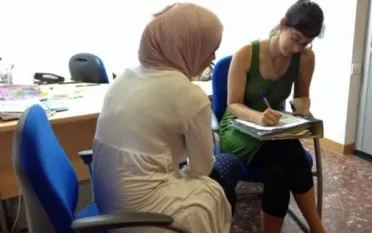
We share some thoughts on how social NGOs fit into a sector with a large number of public networks of Job Offices, Local Employment Services, Youth Guarantee System and other job placement policies.
Those of us who work in the “social” field talk of people “in vulnerable situations”, people “at risk of social exclusion”, “Job placement and social inclusion”, “employability”, “crosscutting skills” and other words of the sort that very often only we understand. What are we talking of? Why, with all the job offices, local employment services, youth guarantee systems and policies on employment do social NGOs also work in this field?
In a nutshell, our labour market is designed in such a way that there will always be more people seeking a job, than jobs offered. As in a game of musical chairs, there aren’t enough for all. Besides more structural labour market issues that don’t make it easy, and for which I don’t have enough space to write about here, the ability to find and keep a job depends on many elements, such as one’s education (what you’re good at), availability (how long you can work and when), one’s health or how you good your presentation is at a job interview and selection process, among many others.
In selection processes, companies search for the best, and are ruthless, so people who have any sort of shortcoming are left out time and again.
In some cases, with the help of a little training and assessment, these people would make it through, and in other cases, we’re talking of people who have no training who, from previous failure, have lost self-confidence and have sometimes lost the most basic habits, have health issues or family problems that limit their availability; or they don’t feel they’re a part of the society in which they live, or find it hard to move around in society, etc. There are many reasons, all complex and the question is that when these people want to progress in life and find a job, they need help.
Today, public employment services are most useful for those who have a greater level of autonomy. For cases requiring a much more personalized attention, more patience and a long-term support, the role of NGOs becomes essential. For decades, tens of social NGOs take this space and help these persons along in a way that better adapts to their circumstances and they innovate taking stock of changing social needs.
Specialization sometimes sometime comes with difficulty (after being in prison, being abused, under public guardianship, having functional difficulties, being a migrant, suffering from an addiction, and others), and sometime it comes from the field of action.
Although often unknown to society at large, these NGOs have become necessary to implement social and labour policies for people who want to work and who, as we usually say, show greater difficulties than usual. Their role as strongholds helps set broken lives back on course and contribute to a more balanced society.



Add new comment